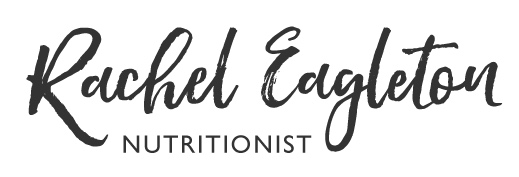Supporting your recovery from injury through nutrition
/As a nutritionist I'm concerned with many aspects of your wellness, beyond what you eat, such as stress levels, mental health, sleep and movement. So when Brendan over at ReDoHealth physiotherapy asked me to write about nutrition for those recovering from injury I was thrilled to help out. Here's a copy of the article I wrote for them.
A downside of finding a sport that you love is the inevitable injury that sidelines you. It could be a stress fracture, slipped disc or tendonitis. No - I'm not talking about eating your feelings via chocolate and red wine - but using your diet to support your recovery and get you back to your sport stronger than ever.
Your focus during your recovery should be on fighting inflammation and fuelling repair – loading up anti-inflammatory foods, keeping essential nutrient intake high as well as boosting protein intake.
Reducing inflammation
Load up on fruits, vegetables and healthy fats to reduce inflammation. Vitamin C is essential for repairing connective tissues and cartilage as well as wound healing. Vitamin C can be found in strawberries, citrus, kiwi fruit, capsicum and tomatoes. You also need Vitamin A to fight infection and for cell growth and development. You can find Vitamin A in sweet potatoes, carrots, spinach, kale and other leafy greens.
Red meat, shellfish, legumes, nuts, seeds and eggs are great sources of zinc, another important nutrient for immune function and growing and repairing body tissues.
Cocoa, tea, and colourful fruits and veggies are full of flavonoids which are powerful antioxidants that prevent cell damage and manage inflammation.
Foods rich in omega-3 fatty acids help reduce inflammation and speed recovery. Try to get in plenty of omega-3-rich fish like salmon, sardines, and anchovies, avocados, nuts and nut butters, seeds and extra virgin olive oil..
Pro-inflammatory foods from refined sugar and refined carbohydrates should be avoided, including processed foods high in saturated fats. Alcohol impairs wound healing and reduces the response of muscles protein synthesis by reducing the body’s inflammatory response so avoid alcohol.
Increase protein
You might know that protein is critical after a workout to rebuild damaged muscle fibres - the same process of muscle protein synthesis is used to heal a soft tissue injury. In addition to building and repairing muscle, protein also helps build and repair collagen and keeps your immune system healthy. Protein also helps keep you full. You can read more about meeting your protein needs here. Make sure each meal contains 20g of quality protein, and also consider an additional serve of casein protein prior to sleep – cottage cheese or greek yoghurt are good sources of casein protein.
If you have cut back on your exercise regime during your recovery period you may need less carbs. Make sure the carbs you are eating coming from whole grains, fruits, and vegetables since refined carbs equal inflammation.
Have you seen this advice before? Uh huh! Pretty much the same diet as the one that supports your training during the good times – a wide variety of fruits and veggies, good quality lean protein, healthy fats and high quality carbohydrates.
Can I just take a pill?
There is plenty of research into supplements but at the moment the direct evidence as to efficacy is lacking. Some strategies that may be worth trying include:
Tart cherry juice for anti-inflammatory benefits and immune support
Fish oil supplements (maybe?)
The current supplements with some evidence behind them are summarised here.
Avoiding injuries in the future
Besides working with your physio to strengthen and refine your technique, it’s worth paying consideration to any nutrient deficiencies that may have led to your injury. Sufficient vitamin D and calcium are both critical to the prevention of bony injuries. There are small amounts of vitD in oily fish and some fortified milk, however the best source is sunshine. Vit D status can be assessed by your GP. Milk, yoghurt, cheese and other dairy foods are the richest sources of calcium but other sources are almonds, canned fish (with bones), tofu and dark green leafy veggies. You also need to ensure you are getting enough energy availability which means paying attention to what and when you are eating.
Sources: Nutritional Support for Exercise-Induced Injuries, Clinical Sports Nutrition, Sports Dietitian Australia
Rachel is a university qualified Clinical Nutritionist based in Balmain. She is also the busy working mum of two teenagers, so is practical and realistic with her advice . Rachel offers private consultations to improve your family's health and well-being. You can find her on Facebook and Instagram for more healthy tips and tricks.


















